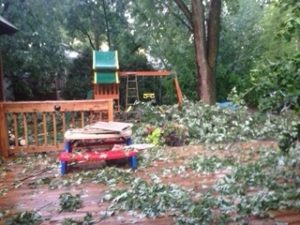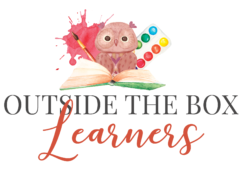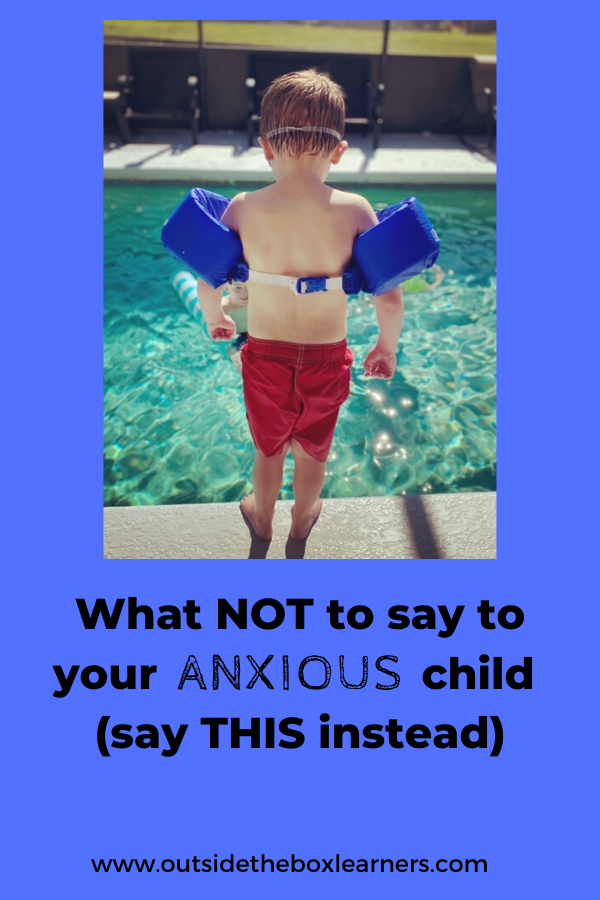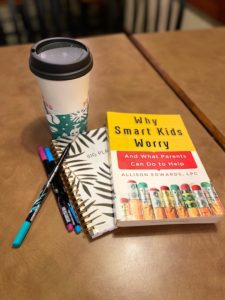Anxiety…. UGH.
It’s a beast.
A joy stealer.
I remember when my oldest was just 6, and we were hovering together in the house in the master bedroom and away from the windows, riding out a pretty significant thunderstorm (we later found out a tree had fallen on our deck and missed the house by a few inches.)

My middle son was delighted with the storm (we were just realizing his passion for weather about this time). Meanwhile, my daughter was crying hysterically due to her fear of storms. And she truly thought she caused the storm because she had asked God for a rainbow (and we all know that rain comes before the bow!)
This blog post contains affiliate links through the Amazon Associates prgoram and any purchases made through such links will result in a small commission for me (at no extra cost to you).
I kept telling her we were going to be ok and she didn’t need to worry. This did NOTHING to assuage her fears.
She was not in a logical state of mind and what I know now is you can not rationalize with the illogical. I’ve tried. Too many times.
It simply does not work.
You HAVE to meet them where they are at.
Saying, “Honey, it’s going to be fine” or “You don’t need to worry about it” simply does nothing for them.
So what should you say to your anxious child?
I’ve learned a technique that helps when one of my kids is worrying about a specific situation (this past week it was worrying about flying on an airplane, and for another kid, it was worry about jumping into the pool.)

This technique is very simple and I’ve heard about it multiple times from different speakers, books I’ve read and parenting classes. (including but not limited to Why Smart Kids Worry, Start With the Heart, and the Connected Families parenting course).
The key is connect first.
Acknowledge their feelings. “Wow, I can tell you’re worried about _________.” OR, “you’re feeling sad because __________”.
You reflect back to them how they’re feeling.
And it completely works!
It may not make the worry go away, but it allows them to feel heard and diffuses the situation. Reflecting back to them how they feel also helps them recognize their own emotions, and raises their emotional intelligence.
Now, this won’t necessarily make their worry go away completely but it is a better response than “Don’t worry” or “It’s going to be fine” and sometimes it will be enough for them to get out of their stuck pattern of thinking in that moment.
If you have an anxious kiddo, one book that I highly recommend is Why Smart Kids Worry. It gives SO many examples of tools to help your anxious kids succeed.
The reality is most anxious kids have active brains and are always going to have something to worry about. This simple technique of reflecting back to them how they feel has helped me with my anxious kids.
If you’re looking for a way to help your anxious child, I suggest giving this technique a try. It may help you too!
What tools have helped your anxious kiddo? I’d love to hear what’s worked for you!




